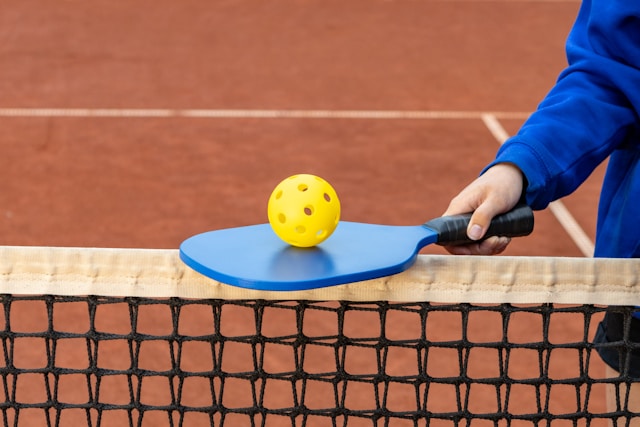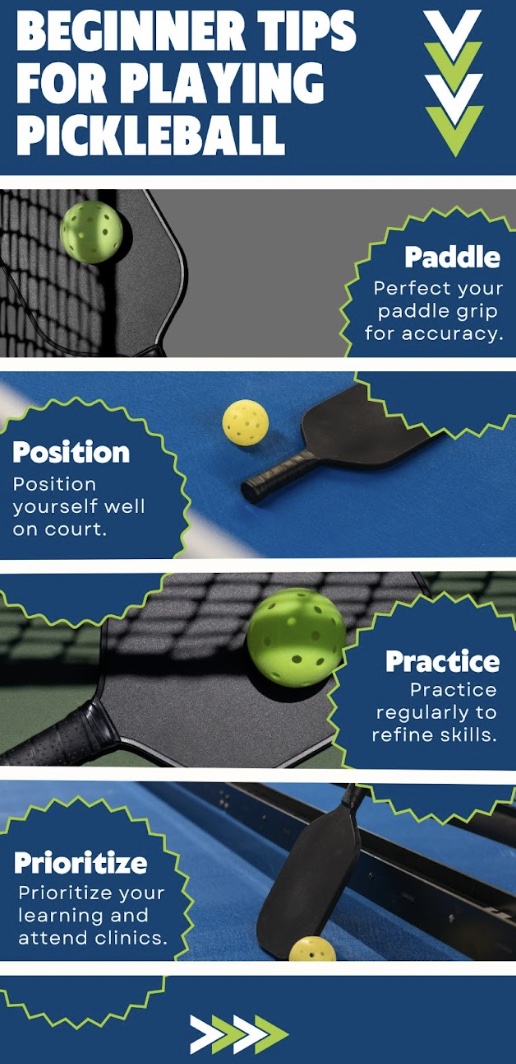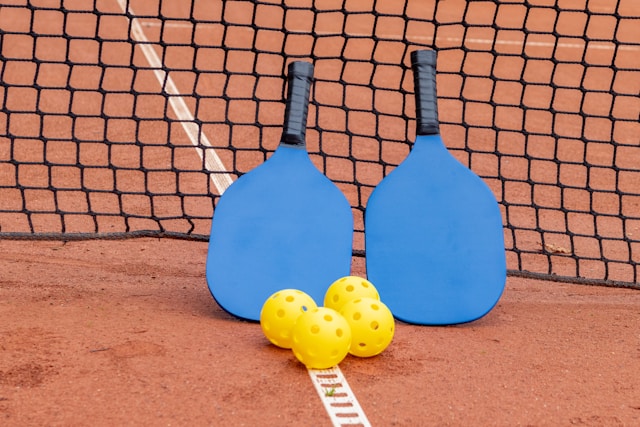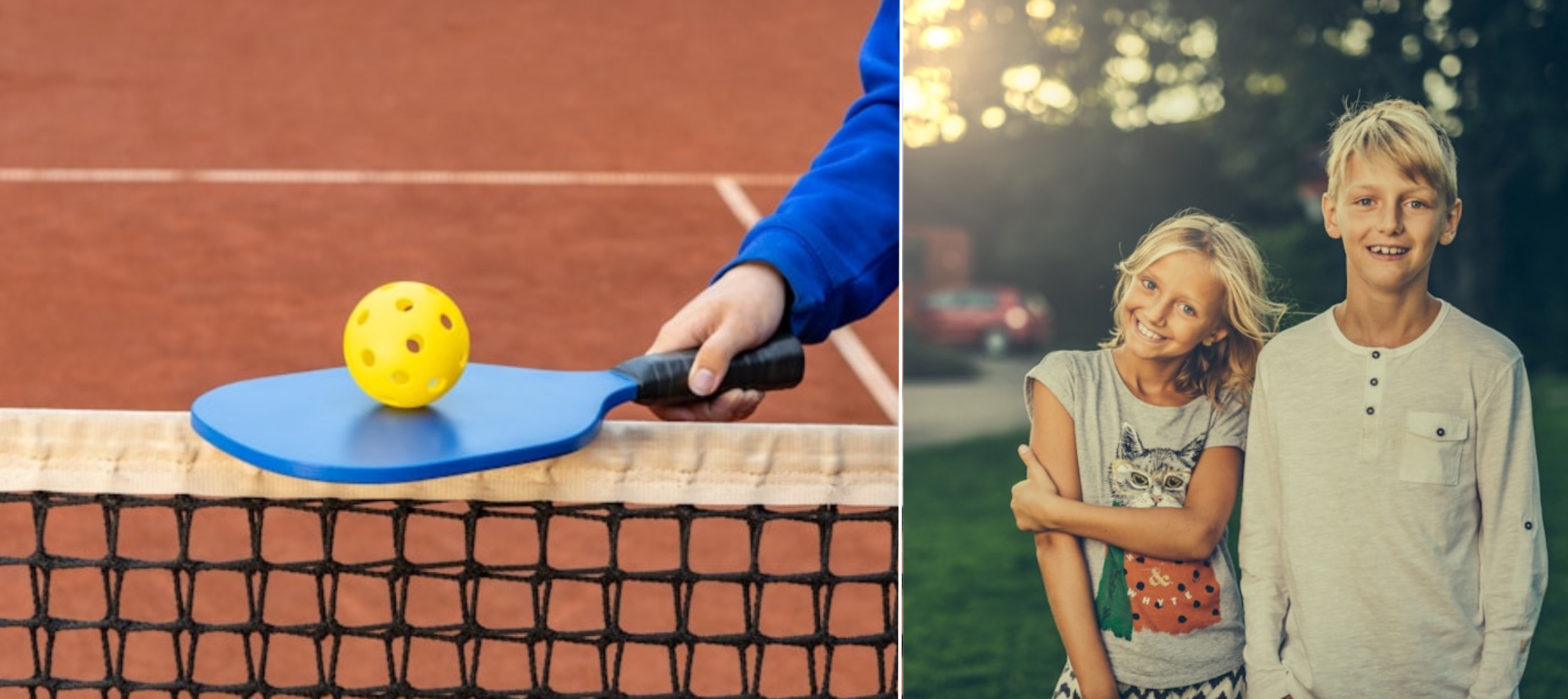Pickleball is rapidly becoming one of the most popular sports among children, offering more than just physical benefits. As of 2023, the sport has grown in popularity across various age groups, with over 4.8 million players in the United States alone.
This growth is attributed to pickleball’s accessibility, simple rules, and ability to engage players of all skill levels. For children, pickleball is particularly beneficial in fostering social skills, making it an excellent choice for both recreational play and structured physical education programs.

The social aspect of pickleball is one of its most significant advantages. The sport encourages teamwork, communication, and cooperation, whether children are playing singles or doubles. Engaging in pickleball helps kids develop essential social skills like collaboration, respect for others, and fair play.
The inclusive nature of the game means that children of all abilities can participate, promoting a sense of belonging and boosting self-esteem. This inclusivity, combined with the sport’s fun and active environment, makes pickleball a powerful tool for social development in young players.
Choosing The Right Pickleball Equipment For Your Child
When selecting pickleball equipment for your child, it’s essential to choose gear that matches their age, skill level, and physical capabilities to ensure they have a positive and enjoyable experience on the court.
- Paddles: The paddle is the most crucial piece of equipment in pickleball. For younger children, lightweight paddles made from materials like graphite or composite are ideal as they are easy to maneuver and reduce the risk of arm fatigue. For instance, the Helium Pickleball Paddle for kids is specifically designed for players under 12, featuring a lightweight graphite build and a smaller grip size, making it easier for young hands to control. For older children or those with more experience, paddles like the Helium Versus or the Stonecho USAPA-approved paddles offer a good balance of power and control with a durable fiberglass face, catering to more advanced play.
- Balls: Pickleball balls for children should be durable and appropriate for both indoor and outdoor play. Sets often come with both types of balls, ensuring that kids can play in various environments.
- Grip Size: The grip size is another vital consideration. A smaller grip circumference (around 3.14 to 4 inches) is typically best for younger children, as it allows them to hold the paddle comfortably and maintain better control during play.

How Pickleball Helps Develop Social Skills In Children
Pickleball is not just a physical activity; it’s also a powerful tool for developing social skills in children.
As a sport that emphasizes cooperation, communication, and inclusivity, pickleball provides a unique environment where young players can enhance their social interactions while having fun on the court.
Encouraging Teamwork And Cooperation
This format encourages children to communicate effectively, strategize together, and support each other, which are all critical components of teamwork.
Through this collaborative play, children learn the importance of sharing responsibilities and trusting their teammates.

This fosters a sense of camaraderie and teaches them how to work together towards a common goal, which is essential for their social development both on and off the court.
Enhancing Communication Skills
Effective communication is at the heart of a successful pickleball game. Children must constantly exchange information with their partners and opponents, whether it’s about positioning, tactics, or shot selection.
This need for ongoing dialogue helps them develop clear and concise communication skills. The game’s social nature promotes verbal and non-verbal communication, teaching children how to listen, respond appropriately, and interpret body language, all of which are crucial for building strong social connections
Promoting Inclusivity And Building Friendships
Pickleball is known for its inclusive nature, making it accessible to players of all ages and skill levels.
This inclusivity allows children to play alongside peers with different abilities, fostering an environment of acceptance and respect. The shared experience of learning and playing pickleball helps children build new friendships, as they bond over the common goal of enjoying the game.
Regular participation in pickleball can help children feel more connected to their community, enhancing their sense of belonging and improving their overall social well-being
Fostering Sportsmanship And Respect
Pickleball is rooted in the values of sportsmanship and respect, which are crucial for children’s social development. As children engage in matches, they learn to respect their opponents, follow the rules, and handle both victory and defeat with grace.
This experience teaches them the importance of fair play and mutual respect, which are essential for maintaining healthy relationships.
By consistently practicing these values on the court, children internalize the importance of treating others with kindness and integrity, which positively influences their social interactions in other areas of life.

Developing Conflict Resolution Skills
Conflict is an inevitable part of any competitive sport, and pickleball is no exception. These moments of tension offer valuable opportunities for children to develop conflict resolution skills.
If it’s a disagreement over a point or a misunderstanding with a partner, children learn to navigate these challenges by communicating effectively and finding solutions that satisfy all parties involved.
This process helps them develop critical problem-solving skills, as well as the ability to manage their emotions and maintain positive relationships, even in the face of adversity.
Boosting Emotional Intelligence And Empathy
Pickleball also plays a significant role in enhancing emotional intelligence and empathy among children.
As they interact with teammates, opponents, and even spectators, children are exposed to a variety of emotions—both their own and others’.
Through these interactions, they learn to recognize and understand different emotional responses, which helps them develop empathy. This understanding allows them to better manage their emotions, respond to the feelings of others with compassion, and navigate social dynamics more effectively.
By regularly engaging in the emotionally rich environment of pickleball, children strengthen their emotional intelligence, which is a critical component of successful social interactions.
Wrapping Up
Pickleball’s impact on children’s social skills extends beyond the court. It offers an engaging way for children to learn vital interpersonal skills, such as patience and tolerance, through regular practice and interaction with diverse players.
The sport’s emphasis on positive reinforcement and encouragement helps build children’s self-esteem, fostering a supportive environment where they can thrive socially and emotionally.
By integrating pickleball into children’s routines, we can nurture a generation that is not only physically active but also socially adept and emotionally resilient.









